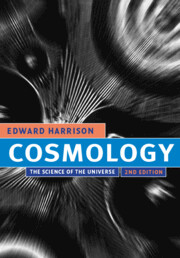23 - The cosmic numbers
from PART III
Published online by Cambridge University Press: 05 June 2012
Summary
Do you believe then that the sciences would ever have arisen and become great if there had not beforehand been magicians, alchemists, astrologers, and wizards who thirsted and hungered after secret and forbidden powers?
Friedrich Nietzsche (1844–1900), The Will to PowerCONSTANTS OF NATURE
Natural units
We measure distances in units such as meters and light years, intervals of time in units such as seconds and years, and masses in units such as grams and kilograms. There is nothing sacred about these units, which are determined by our history, environment, and physiology. If we communicate with beings in another planetary system and inform them that something has a size of so many meters, an age of so many seconds, and a mass of so many kilograms, they will not understand because their units of measurement are undoubtedly different. But they will understand if we say the size is so many times that of a hydrogen atom, the age is so many times that of a certain atomic period, and the mass is so many times that of a hydrogen atom, simply because their atoms are the same as ours (if they were not, it would be an incoherent universe, incomprehensible, and we might not be able to communicate with them). The basic uniformity of the universe provides us all with the same set of natural units of measurement.
- Type
- Chapter
- Information
- CosmologyThe Science of the Universe, pp. 474 - 490Publisher: Cambridge University PressPrint publication year: 2000



